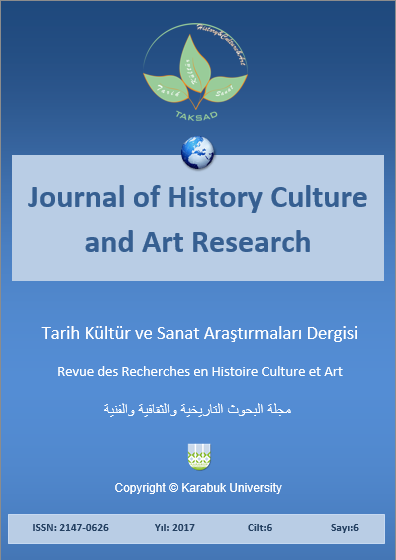Metaphors in Russian Poetry Translations into Tatar
DOI:
https://doi.org/10.7596/taksad.v6i6.1335Keywords:
Pushkin's poetry, Lermontov's poetry, Nekrasov's poetry, Poetic text, Artistic translation, Lexical means of expressiveness, Metaphor.Abstract
A comparative study of Russian poetry Tatar translations is performed in this scientific article, in particular, the poems by A. Pushkin, M. Lermontov, N. Nekrasov with the original to analyze lexical expressive means, namely the metaphors of the original. The following methods and techniques were used in the work: comparative and hermeneutic. The study is based on the translation of poems by A. Pushkin, M. Lermontov and N. Nekrasov, which was performed by Tatar writers A. Iskhak, A. Yunus, M. Sadri, A. Faizi, A. Erikay and N. Arslanov. The choice of authors and their works is conditioned not only by their popularity, but also by the peculiarity of their literary language, the distinctive feature of which are original pictorial and expressive means. On the basis of poem analysis from the point of view of lexical pictorial means of the language use, it was revealed that the language of the selected writers has a rich imagery and a high degree of metaphorization. The authors analyze the issues of metaphor adequate embodiment concerning the poetry by A. Pushkin, M. Lermontov, N. Nekrasov in Tatar language. The problem of the original meaning recreation is considered with the preservation of its form features. This problem is faced by the translators of a poetic text.
References
Abdrakhmanova, A. A.; Galiullina, G. R. & Khadieva, G. K. (2016). The national mindset verbalization through the tatar pragmatonims. Journal of Language and Literature, 7(1), 190-193.
Isxaq, Ä. (1985). İlhamnar çişmäse: dönya şağirlärennän tärcemälär. Kazan: Tat. kit. näşr.
Kirillova, Z. N. (2016). Tatar Education from 1920-1930. The European Proceedings of Social & Behavioural Sciences EpSBS, e-ISSN: 2357-1330. Conference: IFTE 2016 - 2nd International Forum on Teacher Education. 19-21 May 2016. Volume XII. 2016 Published by the Future Academy, pp. 307-312.
Kirillova, Z. N. & Kalganova, G. F. (2016). Activities of the Tatar Studies’ Scientific Society. SGEM 2016, BK 3: Anthropology, Archaeology, History & Philosophy Conference Proceedings, 2, 335-340.
Lermontov, M. (2017). The Complete collection of works by Mikhail Lermontov. URL: http://www.e-reading.club/book.php?book=92137 (Accessed on 17.07.17).
Minnibaev, K. S. (2004). Translation is an art. Golden age. Kazan: Kazan University Publishing House.
Nekrasov, N. (2017). Russian poetry. URL: http://rupoem.ru/nekrasov/all.aspx (Accessed on 17.07.17).
Pushkin, A. S. (1954). The works in 3 volumes. V. 1. Moscow: State publishing house of artistic literature.
Pushkin, A. S. (1954b). Saylanma äsärlär 2 tomda: şiğerlär, poemalar, “Yevgeniy Onegin” romanı, äkiätlär, drama äsärläre. T. 1. Kazan: Tatqniğoizdat matur ädäb.
Salakhova, R. R. & Sibgaeva, F. R. (2014). Cross-linguistic differences as a type of lexical difficulties in Russian-Tatar translations. Journal of Language and Literature, 5(4), 325-328.
Sibgaeva, F. R.; Salakhova, R. R. & Kirillova, Z. N. (2016). Problems of affixal homonymy in the Tatar language. Modern Journal of Language Teaching Methods, December 2016 Special Issue, 120-124.
Yusupov, R. A. (2005). The ratio of different languages and translation issues. Kazan: Tatar book Publishing House.
Downloads
Published
How to Cite
Issue
Section
License
All papers licensed under Creative Commons 4.0 CC-BY.- Share — copy and redistribute the material in any medium or format
- Adapt — remix, transform, and build upon the material for any purpose, even commercially.
Under the following terms:
Attribution — You must give appropriate credit, provide a link to the license, and indicate if changes were made. You may do so in any reasonable manner, but not in any way that suggests the licensor endorses you or your use.
- No additional restrictions — You may not apply legal terms or technological measures that legally restrict others from doing anything the license permits.







